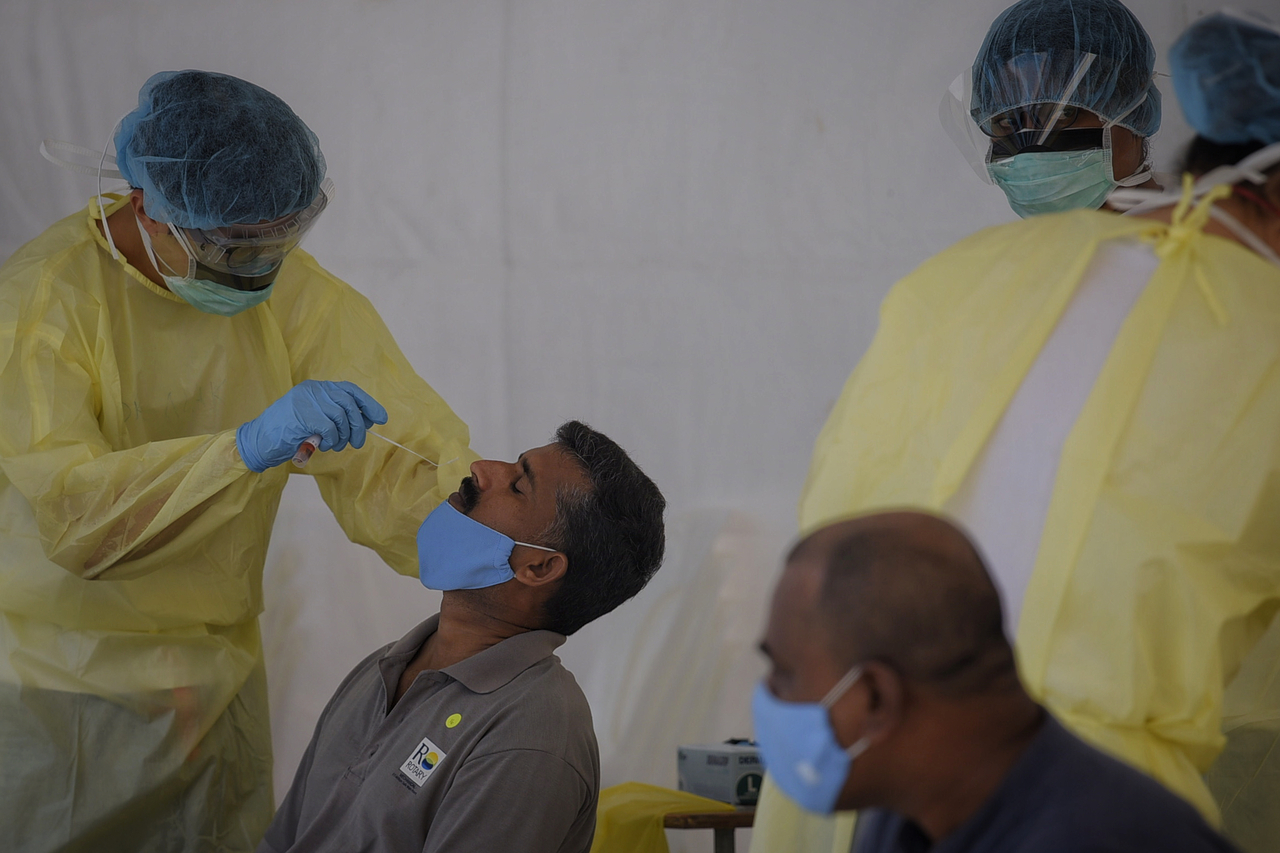Coronavirus: Community transmission in S'pore very low, but so is herd immunity, NCID says
Sign up now: Get ST's newsletters delivered to your inbox

A resident at Westlite Papan Dormitory gets a swab test from medical personnel on April 21, 2020.
ST PHOTO: MARK CHEONG
SINGAPORE - Local transmission of Covid-19 in the general community has been low, at least up until the middle of March, researchers from the Covid-19 research group at the National Centre for Infectious Diseases (NCID) have found.
This shows that Singapore's contact tracing efforts have been effective, according to three studies by the NCID that are among the first of their kind in the world.
However, this also means that immunity rates here are low and much of Singapore's population remains susceptible to the virus, NCID executive director Leo Yee Sin told reporters on Wednesday (April 29).
For their seroepidemiology studies, researchers harnessed locally developed tests which detect antibodies produced in response to an infection and remain in a patient's blood after recovery.
This can help identify patients who were previously infected with a virus.
The three studies aimed to determine the proportion of the Singapore population infected by the virus and to understand how key populations such as front-line healthcare workers have been affected.
They were conducted between February and April, and reflect case figures before numbers began to spike in early April.
One study involving the general community tested 268 children aged 16 and below, as well as 506 adults of all ages.
Another of the studies involved 1,096 healthcare staff at the National University Hospital, Tan Tock Seng Hospital and NCID. About half of the staff were caring for Covid-19 patients or worked in areas with some risk of exposure to the virus.
Both of these studies found no clear evidence of past infection among the samples.
Dr Mark Chen, who heads the NCID's research office, said this showed that a "very low" proportion of the general community in Singapore were infected as of mid-March, and that local protections for healthcare workers have been adequate.
The study on healthcare workers is now being expanded to other healthcare institutions in Singapore, he added.
The third study involved close contacts and household members of confirmed Covid-19 patients.
It found that only about 5.2 per cent were infected despite close contact with the patient, and about half of these cases were not previously detected.
Dr Chen said more tests are planned for early May and the researchers hope to gather more samples from children.
He added that the research teams plan to continue the studies on a regular basis, about once a month, to monitor the status of the epidemic in Singapore.


